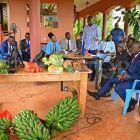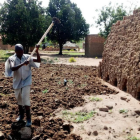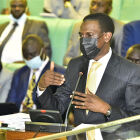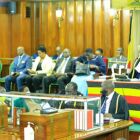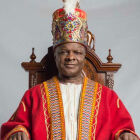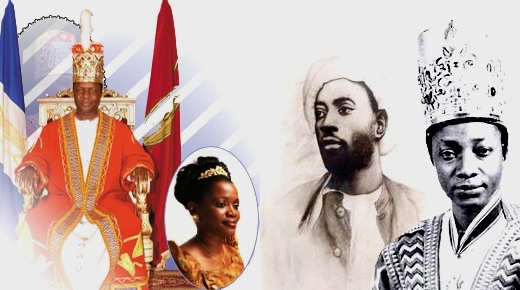In what has infamously come to be labelled the ‘speech that killed Thomas Sankara’ the revolutionary president of Burkina Faso two months before he was assassinated, he said, “debt is a cleverly managed reconquest of Africa aimed at subjugating its growth and development through foreign rules.”
He continued, “debt cannot be repaid ... but if we repay, we are going to die. That’s for sure”. This he said at the OAU summit in Addis Ababa on July 29 1987. At the same gathering, he hinted to not being around for the next summit; because he would likely be taken out by the protagonists of debt for what he had just said.
This low regard for foreign debt nearly four decades after President Sankara’s OAU speech was mirrored by South Africans when they protested the R70 billion [$ 3.7 billion] IMF loan in 2020, and by Kenyans when they petitioned an IMF loan in 2022. In Kenya’s case, the locals were up against the doubling of the eight per cent VAT rate for fuel to 16 per cent which was a condition the international lenders attached to the $2.34 billion loan.
This forced the nationals to sign an online petition demanding the cancellation of the loan because fuel prices shot up straight away. It, therefore, comes as a surprise that on March 6, 2024, when the IMF disbursed $120 million [UGX 464.2 billion] to Uganda under the Extended Credit Facility [ECF]; Ugandans were silent unlike our African counterparts who were up in arms against IMF’s loans because they know something about the international lender that we don’t.
The latest issuance of funds puts the total amount lent to Uganda under ECF since June 2021 to $870 million [UGX 3.3 billion]; not counting the $491.5 million [UGX 1.9 trillion] remitted in May 2020 under the Rapid Credit Facility [RCF] bringing the total sum of loans disbursed by the IMF alone to Uganda in four years to $ 1,361.5 million [UGX 5.2 trillion].
By design, IMF’s ECF loan to Uganda has a grace period of five and half years with a final maturity of 10 years and is awarded at zero interest, which makes it reasonable on paper. In spite of that, the international lender’s funds come with structural conditions that are reminiscent of the World Bank’s structural adjustment programs [SAPs] that have left many low-income economies like Uganda impoverished to this day.
For example, in Egypt on March 6, 2024, the country had to devalue it’s Pound against the dollar, which led to a currency loss of 38 per cent, on top of increasing lending rates for banks for the country to secure $8 billion in funding. Egypt’s IMF loan deal had stagnated since December 2022, being that the country had insisted on keeping its pound at a tightly managed rate.
Devaluation of the Egyptian pound reduces the cost of Egypt’s exports for Western countries; in the process reducing household incomes because locals get less for their goods. The increment in interest rates makes credit hard to come by for local businesses, thereby asphyxiating them.
Presently, Pakistan is negotiating IMF loans with strict conditions placed by the international lender to impose a capital gains tax on cryptocurrencies and listed securities; not to mention hiking gas, and electricity prices. This begs the question: What did Uganda give up to access the funding?
UGANDA’S LIKELY TRADE-OFF FOR IMF’S LOAN
On the day Uganda bagged the loan, March 6, 2024, Bank of Uganda [BoU] announced a central bank rate [CBR] of 10 per cent from 9.5 per cent, and a bank rate of 14 per cent. The CBR is an indicator to banks on the direction prices are taking, a rise in it signals to banks that inflation is imminent, and they, therefore, raise their lending rates.
On the other hand, the bank rate is the rate at which BoU lends to banks. When BoU lends to banks at a high rate, banks transfer this burden to their customers by increasing their lending rates. This is going to drive many businesses to the ground, and lead to the loss of jobs.
The central bank’s move is dodgy because at the height of inflation in Uganda between March and April 2022, the CBR was 6.5 per cent, and the bank rate 9.5 per cent. Headline inflation then was reported at 5.2 per cent, and core inflation at 4.7 per cent, as opposed to 3.4 per cent currently for core, and headline inflation.
Even though the shilling has depreciated due to the issuance of the infrastructure bond in Kenya, this shock is only short-term and if left alone, would correct itself in a trice. For that reason there was no need to increase the CBR and bank rate for a temporary shock unless of course it was strongly advised by the IMF.
Concerning this, Kenneth Egesa, director of Communications BoU, had this to say: “The CBR focuses on the future inflation outlook, not just the present, due to the long timeframe of monetary policy effects. With high inflation predicted, tightening measures were needed in March 2024 to address this elevated risk”.
Having said that, BoU’s monetary policy report for February 2024 states, “Going forward, inflation could fall faster than expected due to stronger- than-expected pass-through from lower fuel prices which would lead central banks easing their policy earlier than expected”.
The report continues to allude to the only possible disruptions to the downward trend of inflation being geopolitical tensions, and supply chain disruptions; none of which have happened in the past month which directly contradicts Egesa’s gloomy foresight about inflation.
The ECF and RCF loan funds are IMF schemes targeted at countries with chronic balance of payment problems, problems that are structural in nature. And for that reason, these programs come with structural conditions and policy adjustments to “ensure that the country’s finances will be strong enough to repay the loan...” states IMF.
The conditions the IMF bases its financing on is prior performance in: governance, domestic arrears and external debt, anti-corruption and rule of law, fiscal revenue/tax administration, and so on. In all the mentioned categories Uganda has put up a lamentable show for the longest time.
In the Auditor General’s report 2023, Uganda’s debt-to-GDP stands at 52.7 per cent up from 48.8 per cent in the financial year [FY] 2020/21, an increment of four per cent in three years. IMF recommends 50 per cent as the point of safety. This is accompanied by a low tax-to-GDP ratio of 14 per cent: 16 per cent is the sub-Saharan standard.
In FY 2022/23, “tax revenue was below its target for the financial year by UGX 22.87 billion” [$5.6 million] stated the Macroeconomic and Fiscal Performance report FY 2022/23. On top of its tax problems, Uganda is popular for bad governance with no established policies; or, a general lack of proper implementation where policy exists.
The government has failed to put in place working mechanisms to check those in positions of power. As is, the establishment in Uganda has failed to deliver services to its natives because of a starless governance structure.
On human rights violations, Uganda sits in the pantheon of countries with the lowest regard for its citizen’s rights. Illegal arrests, detentions without trial, political persecution, and wholesale killings are not a rarity in the country. When this is matched with high levels of corruption at all levels of administration in Uganda; it’s difficult to understand how Uganda passed the IMF’s governance, and human rights test to qualify for a loan!
When I asked Tatiana Mossot, spokesperson of the IMF, to explain why the ECF loan was disbursed to Uganda despite the country’s frightful image she wrote, “The quantitative performance criteria against which Uganda’s progress was gauged are macroeconomic in nature and can be found on page 41 of the document” [Uganda: Fifth Review under the ECF Arrangement and Request for Modification of Performance Criteria – Press Release].
“The reforms that were implemented can be found in the Tables on pages 42-44”. “A favourable outcome of the anticorruption agenda, as you may know, has been the recent de-listing of Uganda from the FATF grey list” she added.
That said, some of the implemented reforms’ reports she referred to didn’t appear on the ministry of Finance website like: the report on penalties for officers responsible for unauthorized spending commitments and actions taken to enforce compliance.
Another corruption report she cited isn’t tenable because it was compiled by the government — Prevalence of Corruption in Uganda 2022/2023 report. One doesn’t expect the government to unbiasedly critique itself on a topic as polarising as corruption.
All things considered, Uganda’s problems are not going to be solved by money but by good leadership; and the IMF knows that. But by continuing to award Uganda loans on grounds it realistically doesn't qualify for; the IMF is imprisoning Ugandans, future and present in debt. Therefore, it’s about time the natives paid attention not only to the regime, but those financing it.
kidambamark3@gmail.com
Nb
Unfortunately such advice to this African regime and its international financiers as dipicted clearly in this article, goes in one ear and out the other! It is never as God advises clearly: Forgive us our debts, as we forgive our debtors. That is why one struggles to advise mainly the citizens of the Kingdom state of Buganda not to perpectually get involved in the general elections of Uganda. Uganda has lost the meaning of Democracy. The right to take part in the conduct of public affairs, including the right to vote and to stand for election, is at the core of democratic governments. The Uganda national elections are not free and fair and they are imprisoning the African Ancient country of Buganda into ever lasting national and international debts.
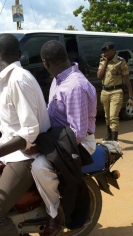

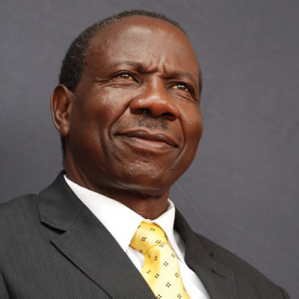


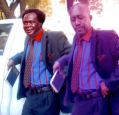
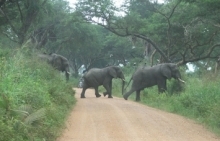
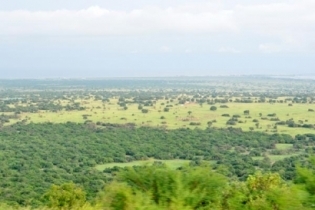

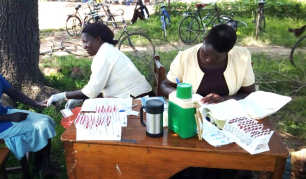
 The killing goes on
The killing goes on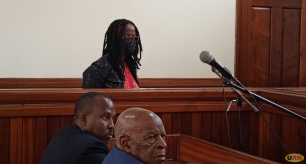

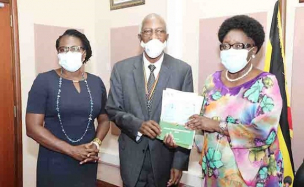
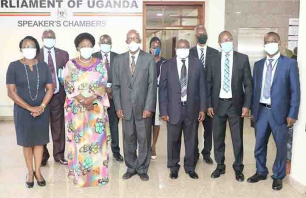
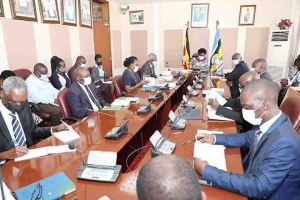
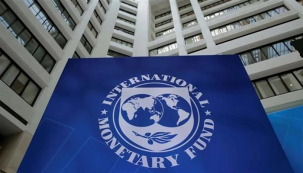 The headquarters of the IMF Bank in the USA
The headquarters of the IMF Bank in the USA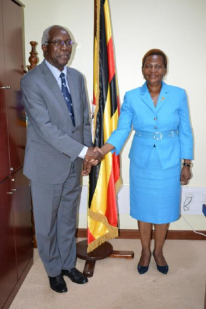
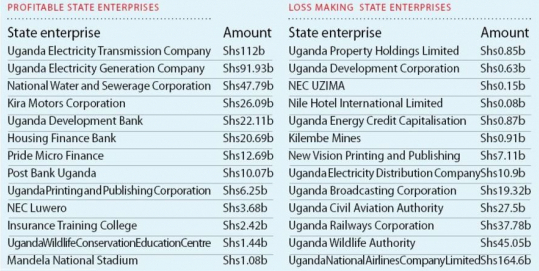

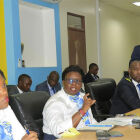
![The International Monetary Fund (IMF) logo is seen outside the headquarters building in Washington, US [Yuri Gripas/Reuters]<br />These institutions were designed with colonial principles in mind, and they remain largely colonial in character to this day.](/media/images/user-images/30858/gallery_thumbs/339507/4/moneyinternational.jpg)

